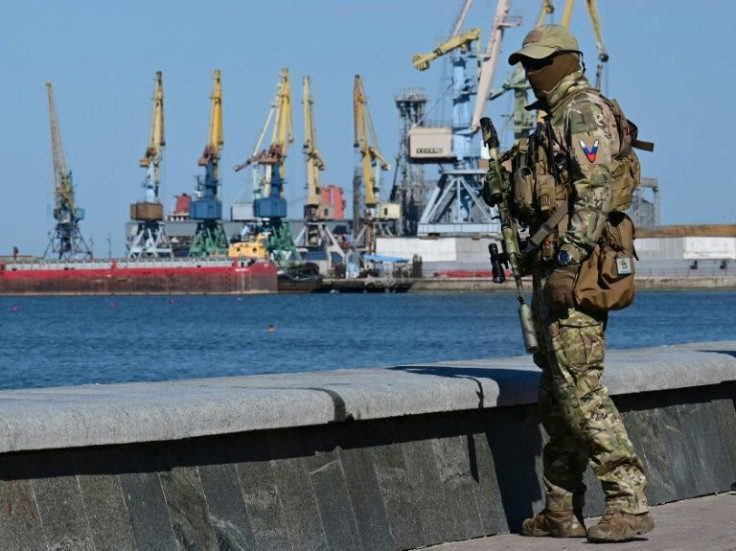Russian Man Sentenced To 20 Months In Prison For Refusing To Go To War

KEY POINTS
- The judge cited Article 332 Part 2.1, which punishes refusal to participate in military operations
- Alexey Breusov has filed an appeal to the Pacific Fleet Military Court
- Breusov was serving in the city of Petropavlovsk-Kamchatsky in the Kamchatka peninsula
A Russian court has sentenced a solider to nearly two years in prison for refusing to participate in the war against Ukraine, months after Vladimir Putin amended the country's Criminal Code in response to the Russia-Ukraine war.
Judge Komlev Vadimovich of Russia's 35 Garrison Military Court sentenced Alexey Breusov to one year and eight months in prison on Dec. 12, citing Article 332 Part 2.1 of the Criminal Code of the Russian Federation, which punishes refusal to participate in military or combat operations.
The offense was only added by Putin in September when he drafted 300,000 reservists in the Russian army – a move strongly criticized even by Kremlin allies.
Breusov was serving in the city of Petropavlovsk-Kamchatsky in the Kamchatka peninsula when he was ordered to be deployed to Ukraine in early October, according to the local Russian media outlet Kam 24.
"[Breusov] was aware of the mobilization declared in Russia but was unwilling to take part in hostilities and refused to follow the commanding officer's order to deploy to the area of the special military operation," the court stated, as quoted by the outlet.
The soldier has filed an appeal to the Pacific Fleet Military Court since then.
Earlier, Putin admitted the military's shortcomings in the war with Ukraine, including the lack of soldiers' basic needs such as medical kits, food, dry rations, uniforms, footwear, protective helmets, and bulletproof vests.
War critics also said that soldiers were being treated in foul and violent ways, making them hesitate to participate in the war.
"Those refusing to fight are doing so because they've had more than their fair share of front-line action," said Elena Popova of Russia's Movement of Conscientious Objectors, as quoted by the BBC.
"Another reason is the foul way they're being treated. They've spent time in the trenches, getting cold and hungry, but when they come back, they just get shouted and sworn at by their commanders."
Popova told BBC that commanders aimed to keep soldiers on the front lines.

© Copyright IBTimes 2024. All rights reserved.





















